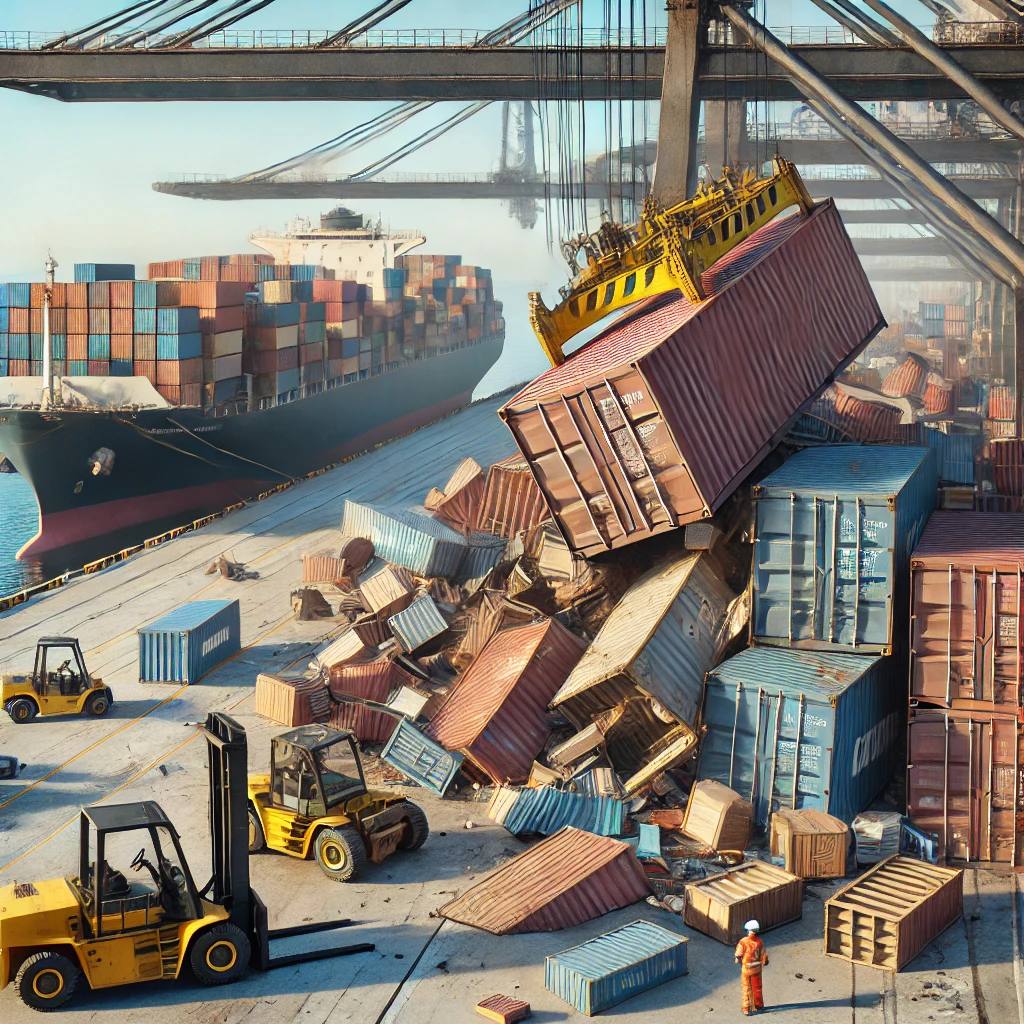Marine cargo insurance plays a critical role in international trade, providing essential protection for businesses that transport goods across oceans, seas, or any navigable waters. With the growing complexities of global supply chains, the unpredictability of marine transportation has also increased. To mitigate the risks associated with moving goods from one part of the world to another, businesses rely on marine cargo insurance to safeguard their investments.
Here are the top risks covered by marine cargo insurance:
1. Loss or Damage Due to Natural Perils
One of the most significant risks in marine transport is exposure to natural forces. Weather at sea can be unpredictable, and storms can cause immense damage to vessels and the cargo on board. Marine cargo insurance typically covers losses from:
- Heavy Storms: High winds and turbulent seas can damage containers, leading to breakage, loss, or water ingress.
- Lightning Strikes: Ships, especially those made of metal, can be susceptible to lightning strikes, which can cause electrical fires or damages.
- Tidal Waves and Tsunamis: These large-scale natural disasters can result in total loss of cargo, especially if the vessel capsizes or sinks.
2. Fire and Explosion
Fires on board a ship or in a warehouse are catastrophic. They can occur for various reasons, from electrical malfunctions to mishandling of hazardous materials. Explosions are also a risk, especially when shipping chemicals or flammable goods. Marine cargo insurance covers the loss or damage to goods caused by both fire and explosions, whether it happens in the middle of the ocean or at the dock.
3. Theft and Piracy
Although it may seem like a relic of the past, piracy remains a real threat in certain regions, especially along some of the world’s most vital shipping routes. The cargo on board can be stolen or held for ransom. Similarly, theft during transport, either at ports or en route, is an ongoing concern. Marine cargo insurance offers protection against theft and piracy, ensuring that businesses are compensated for their losses.
4. General Average Loss
In maritime law, the principle of “general average” can be invoked during extreme emergencies. If a ship encounters a peril, the crew may jettison some cargo overboard to save the vessel and the remaining goods. In such cases, all parties involved in the voyage share the costs of the lost goods. Marine cargo insurance covers the policyholder’s contribution in these situations, preventing businesses from facing unexpected financial burdens.
5. Jettison and Washing Overboard
Occasionally, in rough seas, containers can be washed overboard due to shifting cargo or damaged lashing equipment. Additionally, as mentioned in the general average, cargo may be deliberately jettisoned to save a vessel. Marine cargo insurance will compensate the insured for these losses, which are relatively common during long ocean voyages.
6. Cargo Damage Due to Improper Handling or Stowage
Though shipping companies take significant precautions to ensure goods are handled properly, mistakes do happen. Improper stowage or incorrect handling of goods during loading and unloading can lead to significant damage. Insurance policies often cover losses arising from mishandling, including damage caused by the crew’s negligence or equipment failure.
7. Collision and Sinking
Accidents at sea can happen for a variety of reasons, from navigational errors to mechanical failures. Collisions between vessels, or between a vessel and a stationary object, can result in significant damage or even the sinking of the ship. Marine cargo insurance provides protection against these risks, ensuring compensation for any goods lost in such incidents.
8. Contamination and Infestation
For businesses shipping food products, chemicals, or other sensitive items, contamination and infestation are major concerns. Exposure to moisture, temperature fluctuations, or pests can spoil goods during transit. Marine cargo insurance typically covers contamination, whether it’s from improper ventilation, chemical reactions, or infestation by rodents or insects.
9. War and Civil Unrest
Some marine cargo insurance policies include coverage for losses resulting from war or civil unrest. Shipping routes that pass through politically unstable regions can expose vessels and cargo to dangers such as military action, seizure, or sabotage. While this is not always included in standard policies, specific war-risk coverage can be added to protect against such threats.
10. Stranding, Capsizing, or Grounding
In severe weather or due to navigational errors, vessels can be stranded, grounded, or capsized. These incidents can lead to total loss or partial damage to the cargo. Marine cargo insurance covers the financial loss arising from these unfortunate events, ensuring businesses don’t face crippling losses from accidents that are beyond their control.
Conclusion
Marine cargo insurance is an essential tool for companies involved in the global transport of goods. The risks at sea are varied and unpredictable, ranging from natural disasters to human errors and criminal activities. With comprehensive marine cargo insurance coverage, businesses can protect their shipments, manage risks effectively, and ensure continuity of trade even in the face of unexpected events. Whether you are shipping goods across the world or just across regional waters, understanding the scope of protection offered by marine cargo insurance can make all the difference in safeguarding your assets and ensuring peace of mind.


